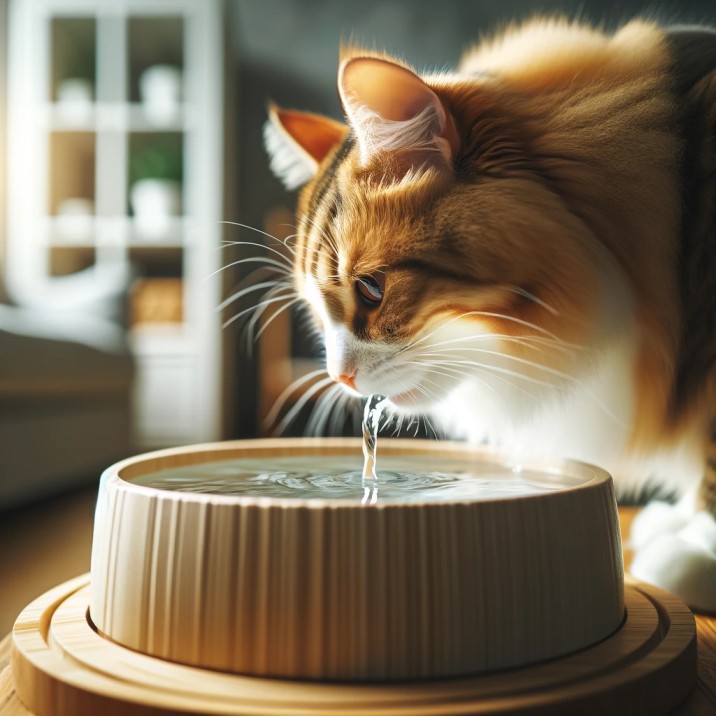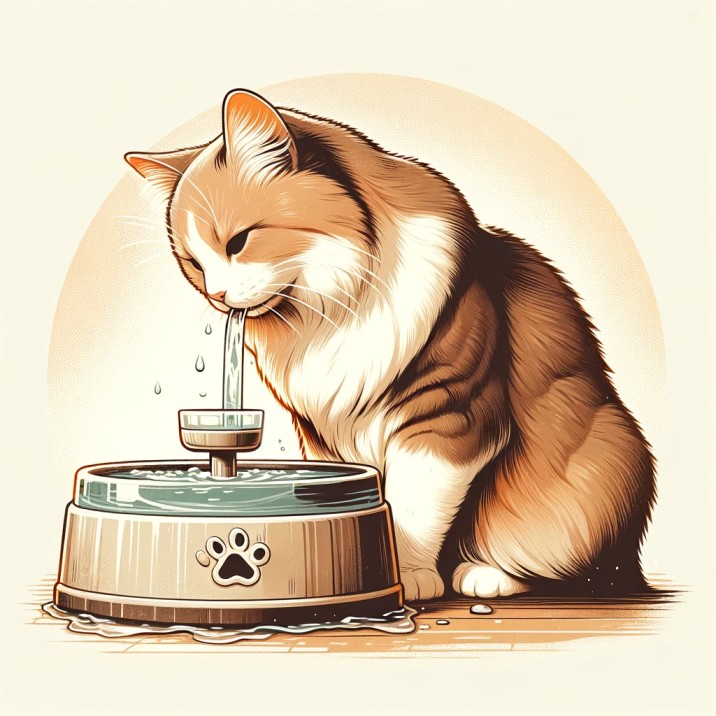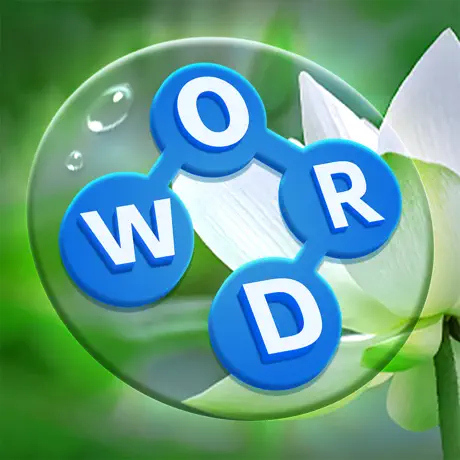Cats should drink water regularly throughout the day to stay hydrated and maintain optimal health. The exact amount of water a cat needs can vary based on factors like diet, activity level, age, and environmental conditions. On average, a healthy cat needs to consume about ten to fourteen times per day on average or 3.5–4.5 ounces of water per 5 pounds of body weight per day. This intake includes water from their food as well as from drinking.
Understanding Cats’ Water Needs
Understanding cats’ water needs is vital for their health and well-being. Cats, unlike many other animals, have a low thirst drive, which can often lead to inadequate water consumption, especially if they are fed a dry food diet. This trait can be traced back to their ancestors, who lived in arid environments and obtained most of their moisture from their prey.
Cats evolved from desert-dwelling ancestors, which is why they are efficient in conserving water. They have more concentrated urine compared to many other animals and can remain hydrated on less water. However, this efficiency doesn’t mean they don’t need a regular water intake; it just means they might not feel the urge to drink as often as other animals.
The type of diet plays a significant role in a cat’s hydration. Cats on a dry food diet (which typically contains about 10% water) will need to drink more water compared to those on a wet food diet (which can contain up to 80% water). Wet food can significantly contribute to a cat’s total water intake, which is why many veterinarians recommend it, especially for cats prone to urinary tract problems.
Factors Influencing Water Intake
Several factors influence a cat’s water intake:
- Diet: Cats on dry food require more water, while those on wet food get much of their water from their diet.
- Weather: In hot weather, cats may drink more water to stay hydrated.
- Activity Level: Active cats or those in warmer environments may require more water.
- Health Status: Certain health conditions, like kidney disease or diabetes, increase a cat’s water needs.
Signs of Adequate Hydration
A well-hydrated cat will have moist gums, normal skin elasticity, and produce a normal amount of clear, dilute urine. Cats that are drinking enough water typically have good energy levels and overall health.
Risks of Inadequate Water Intake
Inadequate water intake can lead to dehydration, which can cause urinary tract problems, including urinary tract infections and kidney stones or crystals. Chronic dehydration can lead to kidney disease, which is particularly common in older cats.
Encouraging Water Intake
Encouraging cats to drink more water can be challenging but is essential:
- Fresh Water: Ensure fresh water is always available. Some cats prefer running water and may benefit from a cat fountain.
- Multiple Water Stations: Place water bowls in various locations around the house.
- Clean Bowls: Regularly clean water bowls to encourage drinking.
- Wet Food: Consider incorporating wet food into the diet.
Monitoring Water Intake
Observing your cat’s drinking habits is vital. Sudden changes in water intake can be a sign of health issues. Increased drinking can be a symptom of diabetes or kidney disease, while decreased drinking can lead to dehydration.
Special Considerations for Kittens and Senior Cats
Kittens and older cats have different hydration needs. Kittens may require more water as they are more active and growing. Senior cats, especially those with chronic illnesses, may need more water and should be monitored closely for signs of dehydration.
Understanding the Water Source Preferences
Cats can be particular about where they drink. Some prefer ceramic or stainless-steel bowls over plastic, which can retain odors. Others may prefer certain locations or even unconventional water sources like taps or showers.
Regular water intake is crucial for a cat’s health. While individual needs may vary, ensuring that your cat has access to fresh water at all times and encouraging them to drink is vital. By understanding the factors that influence a cat’s hydration, recognizing the signs of adequate hydration, and knowing how to encourage water intake, cat owners can help prevent health issues related to dehydration and ensure their feline companions lead healthy and happy lives.


